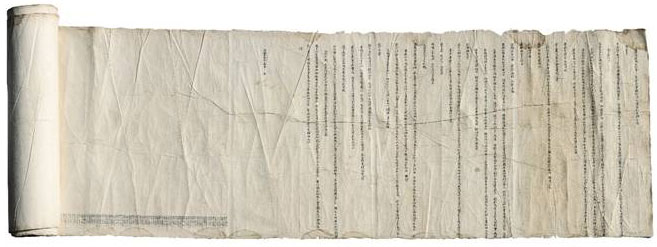E-mail : master@koreastudy.or.kr
Tel : 82-54-851-0700
The Advanced Center for Korean
Studies copyright ©2017
Modern Values

Maninso (movement) has more meanings than the numerical results of simply having 10,000 signers for Sangso; it was the fruit of the politics with the public opinions made by the intellectuals outside of politics during the Joseon dynasty. It was used as a method for the non-political organization of the intellectuals to fulfill the Confucian principles and to watch over power groups. The range of the public opinions was expanded to "all people," which was represented by 10,000 people. This time was a rare case where non-power group directly participated in the state's policies under the name of the public opinions. Thus, the process of making the public opinion focused heavily on procedural justification, and it held a very important modern value here.
In order for the public opinions to be "public" even from the modern perspective, they should be based on "voluntariness." Therefore, the Maninso movement put high emphasis on procedural justification that is promoted by the modern society. Once the movement was started, voluntary participation was encouraged through notifications and meetings, and common opinions were gathered. Once these are collected, the leader of Sangso and officials were selected through voting and recommendation for the effective execution of tasks. Then, various types of drafts for Sangso were submitted by people who would like to participate, and the final Sangso was done through discussions. All participants of Maninso wrote their names and signed in the finished Sangso to make sure they participated voluntarily and took responsibilities. Therefore, it can be said that Maninso (movement) was the fruit of the process in which 10,000 Confucian intellectuals followed democratic procedures which are promoted by the modern society.
Maninso's values can also be found from the region where it was made. It is commonly called "Yeongnam Maninso" as well, indicating that Yeongnam area was the center of the Maninso movement. Out of the seven Maninso movements, the six were led by Yurim from Yeongnam, excluding the one to abolish discrimination against Seo-eol from 1826. It was due to the philosophical charateristic Yeongnam had. Yeongnam was where Korean Confucianism was flourished and "self-displine and practice" were focused. The motto of the study of Teogye, named after the penname of Hwang Lee (pen name: Teogye (退溪), 1501~1570) was "the practical Confucianism." This was the reason why the intellectuals from the area put more values on the complete formation of personality through self-displine instead of success in life through studying. Thus, they could not take positions in the politics after the 18th century, but wills to act in order to make the ethical society were stronger than any other areas. These wills led them to participate in the politics by criticizing the inappropriate policies and using the public opinions. Maninso is the product of these movements.
Furthermore, the participants in the movements should be considered from the modern perspective as well. As mentioned many times above, they were the Confucian intellectuals who were not in the positions of the politics. Although they could have lived lives of promotions and success by applying Confucian knowledge, they lived the lives in which they concentrated on values in their own spaces. They also performed the reinstatement movement with the people who were not in the political positions to ensure purity of the petition. Originally, Eon-jib Seong was selected as the leader of the first Sangso from 1792, but it was changed to Wu Yi due to the experience in the political position, preventing any possibility for the Maninso movement to appear that it was used for the political reasons or benefits to factions.
Actually, Maninso was the only way to participate in the politics for the intellectuals who were not in the political positions without becoming the officials. They chose the petition movement not to acquire power but to fulfill the Confucian principles politically. In this perspective, Maninso was to criticizing and watch over the inappropriate policies on the basis of the pure ideology instead of promoting individual's ambitions or group's benefits.

